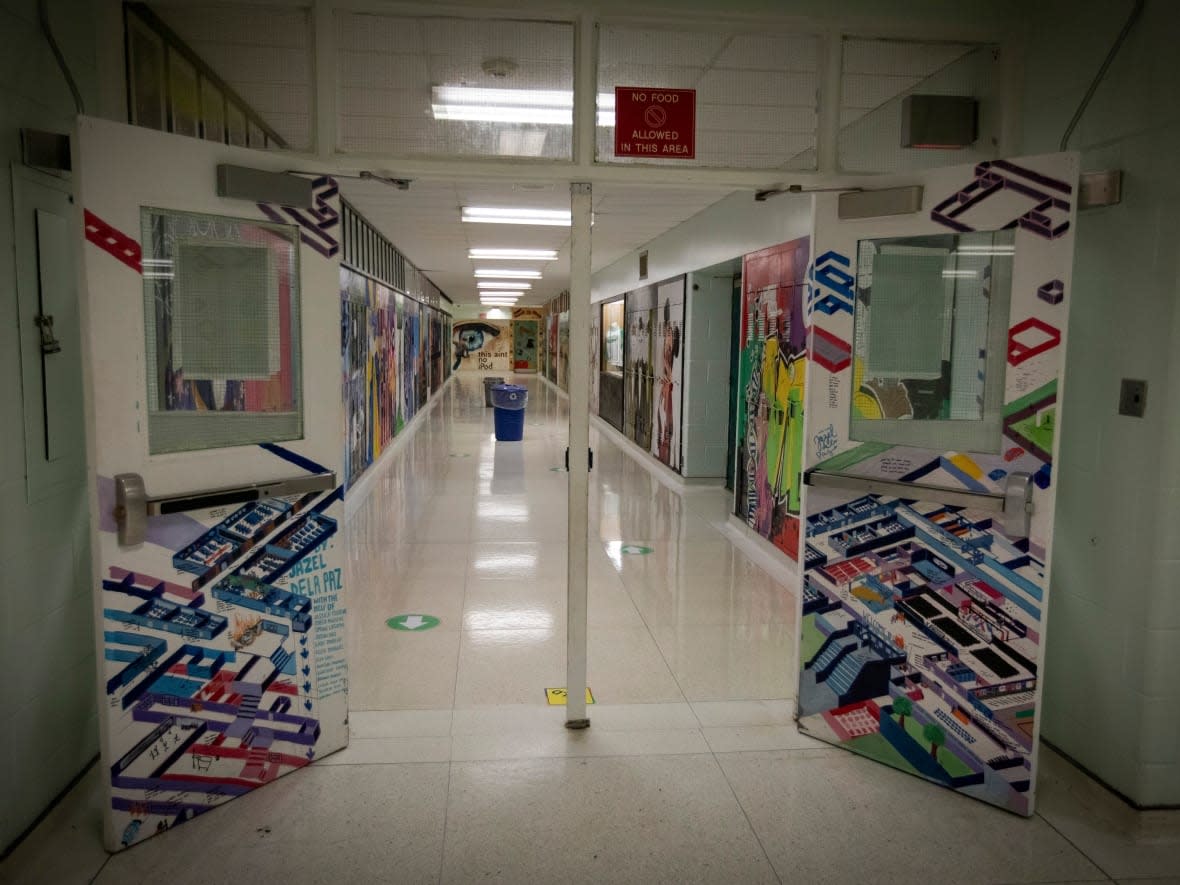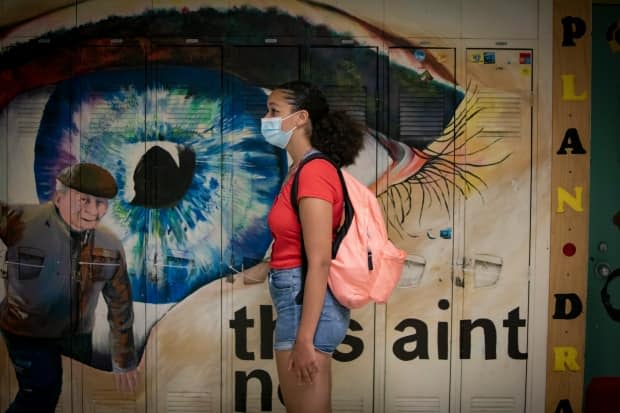TDSB votes to boost access to specialized schools, programs by changing admissions policy

The Toronto District School Board voted on Wednesday to change its admissions policy for specialized high schools and programs to make them more accessible to all students.
Before the decision, some students and parents had spoken out against the move, saying a new admission policy would dilute the quality of the programs, which focus on specific subjects such as the arts, math, science, technology and athletics.
But Colleen Russell-Rawlins, TDSB director of education, said the board needs to strive for both equity and excellence and the intent of the policy is to provide "a fair chance" to all students. The vote passed 17 to 3.
"We must remember that public education is for everyone," Russell-Rawlins said at the meeting. "It is our responsibility to remove barriers that prevent students from access to education and provide them with the pathways to pursue their dreams and realize their full potential."
Previously, there was no consistent admissions process, according to the TDSB. For some specialized schools and programs, students had to write entrance exams, take part in auditions and submit report card marks for review. For others, they simply had to express an interest. A new admissions process will look solely at "demonstrated interest" in a chosen field.
The board will closely monitor the success of students in the specialized schools and programs once the new policy is in place, Russell-Rawlins said.
If demand exceeds the amount of space in specialized schools and programs, the TDSB said it would randomly select applicants. The board will give priority to students from underrepresented and under-served communities in the random selection process.
Trustee Yalini Rajakulasingam, who represents Scarborough North, said she supports the policy change because it opens up opportunities for students who are naturally talented, not just those whose parents can afford lessons.
"I don't think skill or experience alone should dictate admission," she said.
Trustee Dan MacLean, who represents Etobicoke Centre, said he is concerned that the new policy will lower the level of excellence at specialized schools such as the Etobicoke School of the Arts and the random selection process will lead to what he called the "removal of artistic talent."

The new policy will be in effect for September 2023.
About 9,000 students, out of 235,000 TDSB students in total, attend the nearly 40 specialized schools and programs.
Students must demonstrate interest, TDSB says
TDSB spokesperson Ryan Bird said students must still express an interest in a specialized school or program. That means they have to a complete an application. There won't be auditions, exams or interviews.
"You really do have to demonstrate, whether it be maybe a performance video, a written submission, to really explain why you are so passionate and interested in attending one of these programs," Bird said.
Through the random selection process, the board is trying to remove barriers to access, including admission processes, entrance criteria and geographic location, he said.
"Having said that, there are no specific numbers or targets or anything like that. It's just something that really should be considered as we look to revise this admission process," Bird added.

Sophie Eisberg-Marshall, 17, a Grade 11 student at the Claude Watson Secondary Arts Program at Earl Haig Secondary School, said she was concerned before the decision that the quality of the specialized program she attends would deteriorate if the board were to strip it of its application process.
She said she fought hard to become a dance major. She had to fill out a written application, to take part in an audition or solo performance, and to be interviewed to get into the program.
Using random selection would change the program, she said. It means teachers would have to deal with a wide spectrum of interest, passion and skill level, she said.
"You'd have students who aren't as passionate and just thought it would be a fun thing to do to make high school more interesting and more manageable. And there's really no way to see that in a lottery system. Everybody just gets lumped together and their name gets drawn and they get put into the program," she said.
Assessments test for passion, teacher says
At least one teacher said having a less rigorous admissions process is not a good idea.
Alan Tang, an assistant curriculum leader of science at Northview Heights Secondary School, said the current assessments are designed to test for passion and raw talent.
"The interest potentially may not be from the student. It may just be from the parent. When you have an application process where the students have to perform in some way, it also shows whether they're actually truly interested," Tang said.
According to TDSB statistics, white and Asian students are over-represented in many specialty schools and programs, while Black students are under-represented.
Nigel Barriffe, chair of the Urban Alliance on Race Relations, said funding specialty programs in every neighbourhood is the best solution.
"Trustees are not addressing the core issue and tonight's vote is really just a Band-Aid solution to solve a real problem."

 Yahoo Movies
Yahoo Movies 
